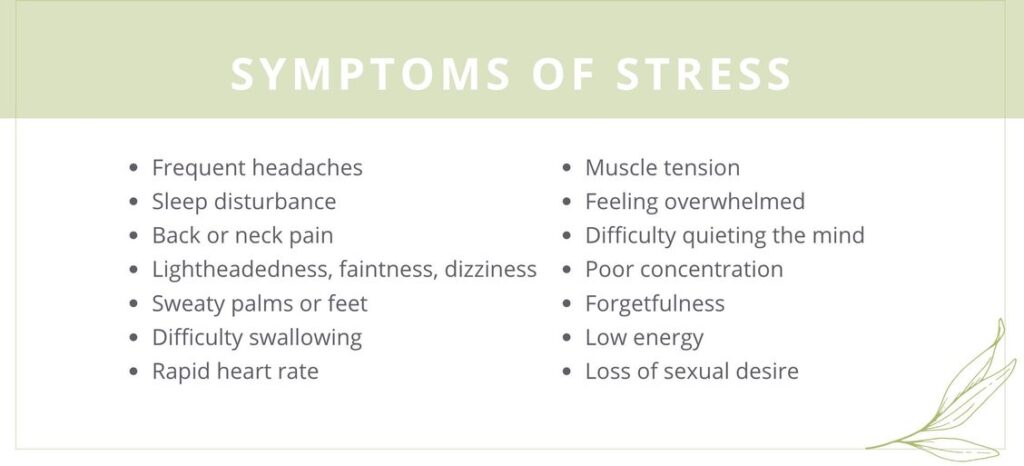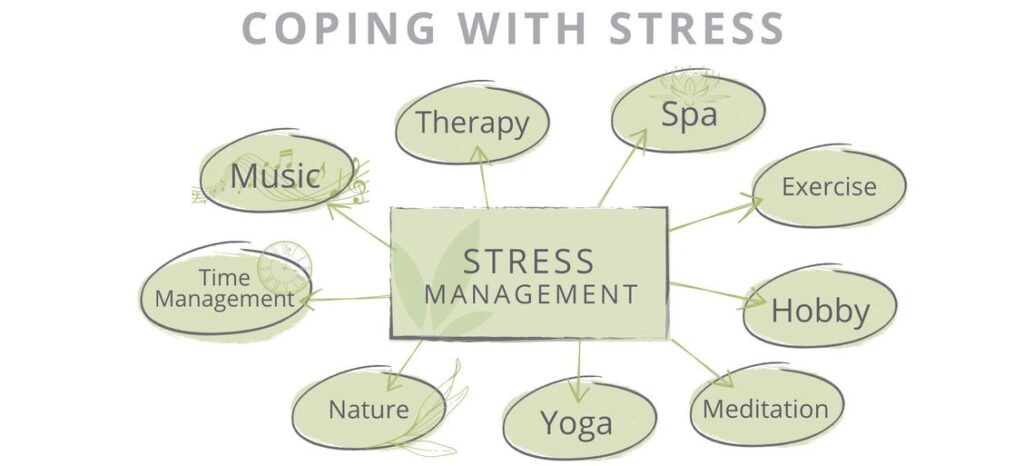Reprinted with permission from AILM Medical.
Stress … what is it? Having stress is common. It is your body’s natural response to a trigger, and it usually doesn’t last long. It’s typically transient and comes and goes. It’s like when you are worried about completing a project, but once the project is done, the worry goes away. In a nutshell, stress is how we react to what we might perceive as a threat. It’s our fight-or-flight response or our sympathetic nervous system. Some stress is positive, such as when you’re excited to go on vacation with your family and you need to pack and prepare. But some stress is negative, and when it can’t be avoided or fought off, the stress becomes chronic.

How can you cope with stress?
People have different ways to manage stress. Some individuals enjoy exercising or meditating. Others may prefer visiting a spa and receiving a massage. And some people like keeping a journal and writing down each day’s best and worst experiences. It can help you to sort through obstacles and determine what works. Discover what helps you manage your stress levels.

Understand what causes your stress.
Different people have different triggers that affect them. What triggers you might not be a trigger for someone else. And what bothers them might not bother you. Being aware of and mindful of your triggers allows you to manage your responses. You can learn to recognize them, consider healthy ways to think about them, and resolve them. Finding and implementing healthy coping mechanisms can reduce their impact on your daily life and the likelihood that they will affect you in the long run.
You can experiment with deep breathing techniques.
Take some big, deep breaths, and physiologically, it will lower your blood pressure and heart rate. Engage in deep breathing. You will feel your body relax and calm down. Stress brings tension to the muscles, which can result in symptoms like headaches, backaches, and general fatigue.
Use the box breathing technique when under pressure. Breathe in through your mouth and out through your mouth. Take a big, deep breath for 4 seconds. Hold it for 4 seconds. Exhale for 4 seconds. Hold for 4 seconds. And repeat for three or four rounds. You will start to feel your body calm down. It’s always good to just go back to your breath and acknowledge your breath.
Practice mindfulness.
There is strong research that shows mindful meditation can reduce psychological stress. Some people are intimidated by meditation. But there are active and passive mediations you can use. You can set aside five minutes in a quiet place and just breathe. Another ways of mindfulness is taking short walks outdoors with focus on your surrounding. Practice being present in the moment. Some people like yoga for its relaxing and calming benefits. There are several apps you can download, some of which are free, like CALM, Breethe, Insight Timer, and Headspace.
Stressful moments happen to all of us. But if stress is a daily occurrence, isn’t letting up, and is causing symptoms that impact your life, you may want to consider talking with a mental health professional.
Ailm Medical in Collaboration with Amputee Coalition presented: Resolute Your Outlook: 5 Methods of Managing Your Mental Health for the New Year and Beyond. View the full webinar. And check out the other webinars in the 3-part series in their resource section.

